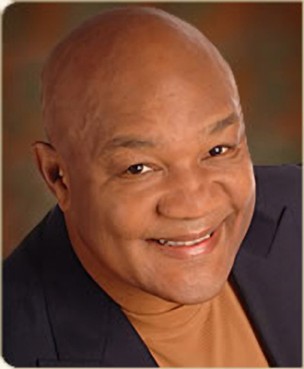
(RNS1-AUG22) Boxing legend George Foreman’s recent memoir is “God in My Corner.” For
use with RNS-10-MINUTES, transmitted Aug. 22, 2007. Religion News Service photo courtesy of
Beliefnet. ***BEST QUALITY AVAILABLE
(RNS) A famous atheist who harbors a secret soul. A 6-year-old Hasidic mathematical genius. A pompous and increasingly loony college professor with delusions of divine grandeur.
These are the characters that populate Rebecca Newberger Goldstein’s recent novel, “36 Arguments for the Existence of God,” a thoughtful and irreverent romp through the contemporary debate between atheists and believers.
Like Cass Seltzer (the novel’s soulful atheist), Goldstein has added an appendix with 36 arguments about God to her book — and found the flaws in each.
The award-winning philosopher/novelist talked about why 36 is a sacred number, what novels can show us, and why even nonbelievers sometimes cling to religion. This interview has been edited for length and clarity.
Q: Why add an appendix with arguments about God to a novel?
A: I love the idea of bridging these two worlds of fiction and non-fiction. I don’t think there should be such a strong distinction between them. To have a real work of philosophy appended to the end of a novel pleases me.
Q: Why 36 arguments? Why not 17? Or four?
A: Within Judaism there is a tradition of assigning each Hebrew letter a corresponding number. Eighteen spells out the word for life, “chai.” Of course, 36 is twice that, so it has special significance. There’s also a kabalistic legend that there are 36 people for whom God saves the world.
Q: How does the appendix relate to the novel itself?
A: Almost as an afterthought, Cass attaches this appendix to his book in which he gathers many, many more arguments (about God’s existence) than have ever been gathered before, and he goes through each one and finds them all flawed.
But that’s irrelevant, in a way. It’s not going to change anything in religion or what people believe to be true. One of his theses is that religion is about so much more than belief in God, and that the arguments are really somewhat irrelevant. Religion is about ethical dilemmas, fear of death, community, and historical narratives.
Q: If beliefs don’t matter, what does that tell us about religion?
A: It shows how deeply rooted religious impulses are in human nature. You can have a religious experience in a completely secular context. I’m not saying we’re all religious. I’m not. I’m an atheist. But it’s too easy to make religion about arguments and demonstrate the fallacies of those arguments and say, “That’s that.”
Q: Why write a novel about the contemporary battle between atheism and belief?
A: I’m a trained philosopher, but I write these novels about the collisions of worldviews. One of the things that drove me to write this novel is that all of us are interested in these questions, and they should not be limited to philosophers in the academy. Especially this one (over atheism) that has burst into the public square and has people riled up. It’s a fascinating moment in time.
Q: Can fiction tell us something about this debate that other writing can’t?
A: Beliefs are very tied up with our entire view of the world. When people are arguing about science versus religion, faith versus reason, it goes to our deepest core. Fiction can show how even the most abstract ideas are interwoven within us at a very deep level.
Q: One character in your book struggles with whether to leave his religious community because he doesn’t share their beliefs anymore. Why would anyone stay in that case?
A: I know people who are living extremely orthodox lives, but who probably don’t believe in God. I broke away from my Orthodox Jewish family, but I remain close to them. There are loyalties to the group, familiarity. What I’m trying to get across in this story is that religion is about so much more than belief in God.
Q: You criticize believers of intelligent design for proposing an “argument from ignorance.” But isn’t an atheism based on the lack of a flawless proof of God’s existence also an argument from ignorance?
A: True. But that’s only one-third of my argument for atheism. Another is that evolutionary psychology is giving us very good explanations for why we believe in God — even without having very good reasons for doing so. Lastly, the world just does not look like it has the kind of God like the one that the three major monotheisms posit is in control. The mental gymnastics done to justify the existence of suffering to make it compatible with the God described by those religions is too great, too torturous, and doesn’t do justice to the sufferers.




